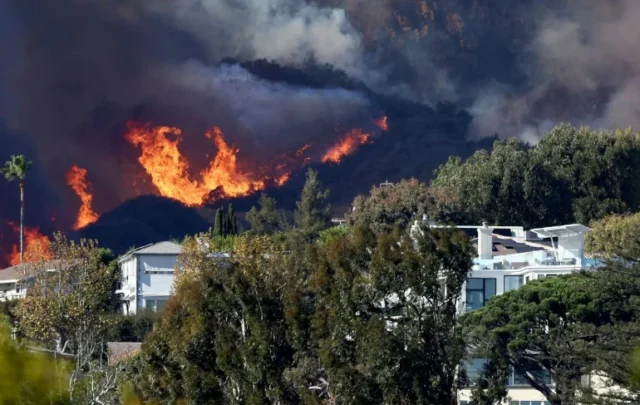NOTE: Images in this archived article have been removed.
 This is a quick response to Total Oil’s announcement of their investment in UK shale gas and in the Government’s passionate support for the shale gas industry.
This is a quick response to Total Oil’s announcement of their investment in UK shale gas and in the Government’s passionate support for the shale gas industry.
Kevin Anderson1 and Dr John Broderick2
1 Professor of energy and climate change Deputy director of the Tyndall Centre for climate change research
2 Research Fellow …Tyndall Centre for climate change research
Both are based in the School of mechanical, civil and aeronautical engineering at the University of Manchester
_________
In May 2012 the UK Prime minister joined with other G8 leaders in reaffirming their respective national commitments to make their fair contribution to avoiding a 2°C rise in global temperatures (Camp David declaration). That is, the UK has committed to reduce its emissions of carbon dioxide, and hence its use of high carbon energy sources, in accordance with the science of climate change (the Copenhagen Accord). This weekend the Prime minister attributed the UK’s recent flooding and damaging weather, and hence at least some of the costs, to climate change.
In sharp contrast, just this morning the UK’s Energy Minister, Michael Fallon, welcomed Total Oil’s announcement that it is to invest in the development of the UK’s shale gas industry, with the Prime minister noting how “we’re going all-out for shale. It will mean more jobs and opportunities for people, and economic security for our country.”
The Prime minister’s position (and the UK’s international commitment) on climate change are incompatible with his enthusiasm for a shale gas industry in the UK – a point reiterated in the Government’s own recent report on shale gas. As the Department for Energy and Climate Change’s chief scientist stated:
“If a country brings any additional fossil fuel reserve into production, then in the absence of strong climate policies, we believe it is likely that this production would increase cumulative emissions in the long run. This increase would work against global efforts on climate change.”
Shale gas is indisputably a high-carbon energy source. It is identical to natural gas, with 75% of its mass made up of carbon and consequently when combusted it emits large quantities of carbon dioxide. What is also indisputable is that there is a continued “absence of strong climate policies”.
The science of global warming, the maths of our emissions and our pledge to limit temperature increases to below a 2°C rise lead to the categorical conclusion that shale gas must remain in the ground if we are not to renege on our commitment to avoid “dangerous climate change”.
The three arguments that are misused to support the industry are that shale gas:
- has lower emissions than coal. This is true only if the coal displaced by shale gas remains in the ground and is not combusted elsewhere (it is this point the Government’s own report is referring to).
- offers the prospect of low-carbon energy. Gas is a high carbon energy source, emitting half the quantity of carbon dioxide per unit of electricity generated as the worst and dirtiest energy source we know, coal. Half the worst is still very high emissions.
- is a transition fuel to a low-carbon future. Even the shale gas industry acknowledges that it will not produce significant quantities of shale gas before around 2025, by which time our international commitments on climate change would not permit it to be combusted in any significant quantities.
Kevin Anderson and John Broderick have written extensively on shale gas and climate change, have given evidence at various UK and EU parliamentary hearings, presented their work at a range of industry conferences and recently were invited to peer-review the UK Government’s 2013 Shale gas review.
For further information on shale gas see:
For a presentation on shale gas by Kevin Anderson given recently at a Chatham House event and later at an all party unconventional oil and gas group session, see: Shale gas and avoiding dangerous climate change
Gas flame image via s_p_a_c_e_m_a_n/flickr, Reproduced under Creative Commons 2.0 license.
 This is a quick response to Total Oil’s announcement of their investment in UK shale gas and in the Government’s passionate support for the shale gas industry.
This is a quick response to Total Oil’s announcement of their investment in UK shale gas and in the Government’s passionate support for the shale gas industry.




